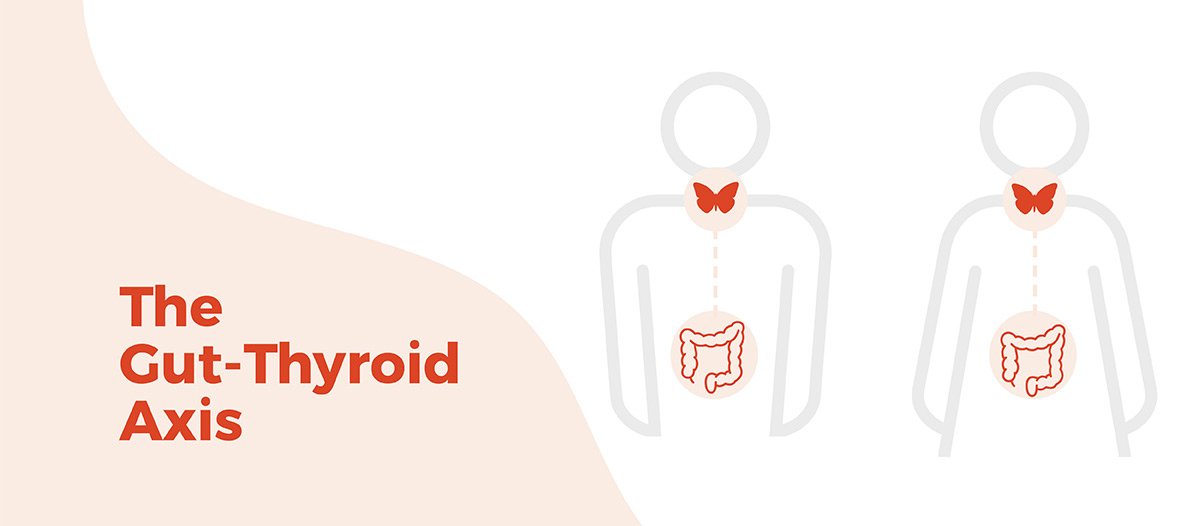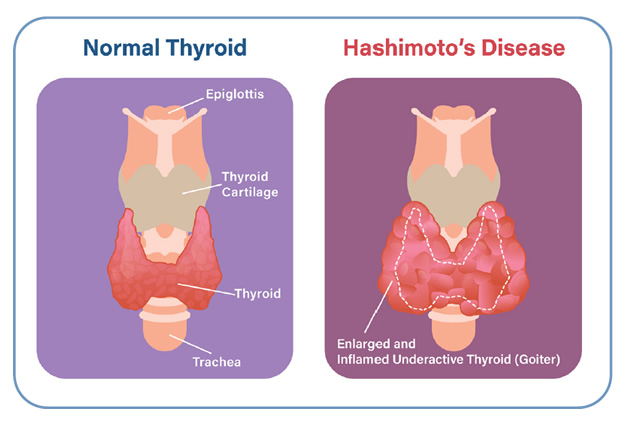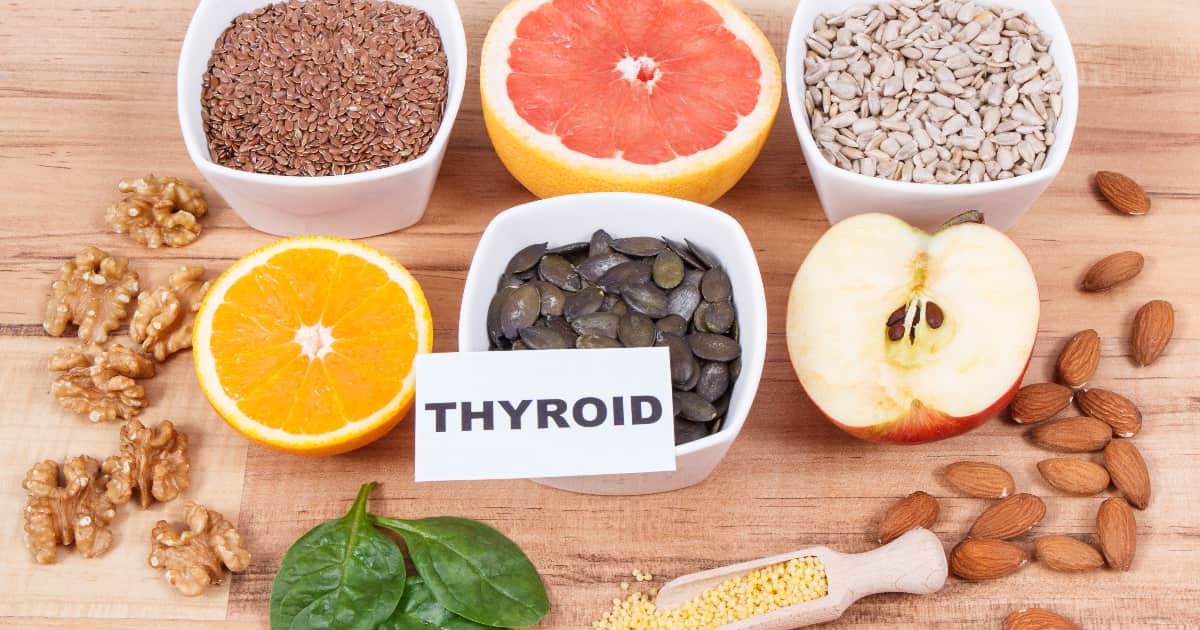
The interconnectedness of the gut and thyroid health is an area of growing interest, especially as thyroid disorders continue to rise worldwide, affecting millions. In India, thyroid issues impact around 42 million individuals, with hypothyroidism being especially prevalent. With over 10% of India’s population experiencing thyroid problems, there’s an urgent need to understand how underlying factors like gut health may influence thyroid function.
Functional medicine offers valuable insights into this connection, focusing on how gut imbalances may contribute to thyroid disorders. This article explores how gut health affects thyroid function, citing recent research, relevant data, and actionable strategies to help individuals improve both their gut and thyroid health.
_1731322201.webp)
Understanding the Gut-Thyroid Axis
The gut-thyroid connection operates through complex biological pathways, which include the gut microbiome, intestinal permeability, and the immune system’s response to gut health. This axis, or the “gut-thyroid axis,” represents a two-way relationship where the health of one can profoundly impact the other.
Research indicates that the gut microbiome—the collection of trillions of microorganisms in the gastrointestinal tract—plays a significant role in regulating thyroid hormones. Certain gut bacteria facilitate the conversion of the inactive thyroid hormone T4 into the active form T3. If gut health is compromised, it can hinder this conversion, leading to thyroid dysfunction. Intestinal permeability, often known as “leaky gut,” also plays a crucial role. When the gut lining becomes permeable, it allows toxins, undigested food particles, and pathogens to enter the bloodstream, triggering inflammation. Chronic inflammation can dysregulate the immune system, increasing the risk of autoimmune thyroid disorders, like Hashimoto’s thyroiditis.

The Impact of Gut Health on Thyroid Function
Gut health is integral to immune balance, nutrient absorption, and inflammation control—all factors essential for thyroid health. Below are some key ways in which gut health impacts thyroid function:
- Autoimmune Connection: In autoimmune thyroid diseases like Hashimoto’s, the immune system attacks the thyroid gland, impairing its function. Studies reveal that gut dysbiosis (imbalance in the microbiome) and leaky gut may contribute to this autoimmune response, particularly by increasing systemic inflammation and immune activation.
- Nutrient Absorption: Essential nutrients for thyroid health, such as iodine, selenium, and zinc, are absorbed through the gut. A disrupted gut microbiome can impair nutrient absorption, leading to deficiencies that negatively affect thyroid function. For example, a deficiency in selenium, which is abundant in Indian foods like walnuts and fish, is linked to thyroid dysfunction due to its role in converting T4 to T3.
- Inflammation and Cytokine Production: A healthy gut produces short-chain fatty acids (SCFAs), which are anti-inflammatory and support immune function. When gut health declines, the production of SCFAs decreases, increasing inflammation, which is harmful to thyroid function. Chronic inflammation affects the thyroid gland’s ability to produce and convert hormones effectively.

Clinical Research Supporting the Gut-Thyroid Connection
Emerging research has strengthened the link between gut health and thyroid function. A study published in Thyroid Research and Practice, a peer-reviewed Indian journal, has shown a higher prevalence of gut dysbiosis among individuals with thyroid disorders. These individuals also reported improved thyroid function and reduction in thyroid antibody levels following gut-targeted therapies, including probiotics and a gluten-free diet.
Another study in the Journal of Clinical Endocrinology and Metabolism found that individuals with thyroid dysfunction often exhibit gut microbiota imbalances. Clinical trials have suggested that dietary interventions, such as increasing fiber intake and including probiotics like Lactobacillus and Bifidobacterium, may help restore gut balance and, consequently, improve thyroid health.
![]()
Functional Medicine Approaches: How to Support the Gut-Thyroid Axis
Functional medicine provides a holistic approach to addressing thyroid issues by focusing on gut health. Below are some evidence-based strategies commonly used:
- Comprehensive Testing: Functional medicine practitioners often recommend comprehensive stool analysis to assess microbiome health and intestinal permeability tests to detect leaky gut. A thorough thyroid panel—including tests for TSH, T3, T4, and thyroid antibodies—is also essential.
- Anti-Inflammatory Diets: An anti-inflammatory diet, such as the Autoimmune Protocol (AIP), can support both gut and thyroid health by reducing inflammatory triggers. In India, this may include avoiding potential allergens like gluten and dairy and incorporating anti-inflammatory spices like turmeric, which have shown benefits in gut healing.
- Probiotics and Prebiotics: Probiotics help restore microbiome balance, which is essential for thyroid function. Indian fermented foods like curd and pickles can naturally increase beneficial bacteria. Prebiotics, found in fiber-rich foods like garlic and onions, also nourish beneficial gut bacteria, supporting thyroid health.
- Nutrient Supplementation: Nutrients like selenium, iodine, and zinc are essential for thyroid health. Functional medicine practitioners may recommend these supplements if deficiencies are detected, or they may suggest dietary sources, such as iodized salt, pumpkin seeds, and seafood.
- Stress Management: Stress impacts both gut health and thyroid function, so incorporating stress-reduction techniques such as yoga, meditation, or regular exercise can significantly improve overall health.

Practical Applications for Supporting Gut and Thyroid Health
A healthy diet is foundational to supporting both gut and thyroid health. Here are some food and lifestyle recommendations:
- Include Fermented Foods: Traditional Indian foods like idli, dosa, and lassi are rich in probiotics, supporting gut microbiota diversity.
- Fiber-Rich Foods: Whole grains, fruits, and vegetables like carrots and apples support a healthy gut by promoting SCFA production.
- Anti-Inflammatory Spices: Turmeric, cumin, and coriander have anti-inflammatory properties that can reduce gut inflammation.
- Avoid Processed Foods and Added Sugars: These can disrupt the microbiome, leading to dysbiosis and inflammation, which may worsen thyroid health.
- Regular Physical Activity: Exercise supports gut motility, reduces the risk of dysbiosis, and may help balance thyroid function by reducing stress.
Conclusion
The connection between gut health and thyroid function is an essential aspect of holistic health management. A compromised gut can lead to thyroid dysfunction through mechanisms like nutrient malabsorption, inflammation, and immune dysregulation. Understanding and addressing this relationship is especially important in India, where thyroid disorders affect millions. By adopting a functional medicine approach that emphasizes gut health through dietary changes, targeted supplements, and lifestyle adjustments, individuals can support their thyroid health and overall wellness.
Improving gut health isn’t a quick fix but a long-term strategy with significant benefits for thyroid health. If you’re experiencing symptoms of thyroid dysfunction, consulting a healthcare professional specializing in functional medicine can help you develop a comprehensive and personalized plan to restore gut and thyroid balance.


.png)


